The Oxford Group And Detroit Connection
The Oxford Group was a Christian organization founded by American Christian missionary Dr. Frank Buchman. Buchman was an American Lutheran minister of Swiss descent who in 1908 had a conversion experience in a chapel in Keswick, England and as a result of that experience he would later found a movement called A First Century Christian Fellowship in 1921, which eventually became known as the Oxford Group by 1931.
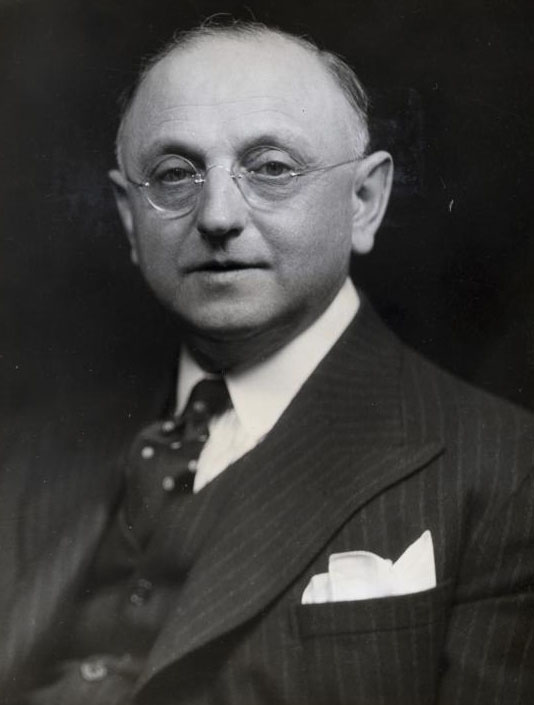
In 1932, a man named Rowland Hazard, son of a wealthy Rhode Island mill owners and a State Senator, had become a hopeless alcoholic, and in his quest for help had sought out the world-famous psychiatrist, Carl Jung. This story is documented in our Big Book.
In 1934, Ebby Thatcher, a childhood friend of Bill Wilson’s, was about to be locked up as a chronic drunk in Bennington, Vermont. He was visited by three men from the Oxford Group; Shep Cornell, Rowland Hazard, and Cebra Graves. They later sent Rowland Hazard back alone to see Ebby Thatcher. He acted as sort of a sponsor and told his story. He taught Ebby the precepts he had learned from the Oxford Group. Later, as we know, in December of that year, Ebby had the chance to relay these precepts to Bill Wilson.
Now we begin to see the emerging pattern of events in Akron and in the New York area in the ten year period before the start of AA. We see how, through the machinery of the Oxford Group and its key leaders, Frank Buchman and Sam Shoemaker, events conspired to make possible this meeting between Bill and Bob in Akron, Ohio, in 1935. Shep, Cebra and Rowland were part of the business teams which were working around the country in various cities.
In 1934 Bill surrenders his life to God at the Calvary Episcopal Church mission run by Sam Shoemaker (Sam had met Frank Buchman in China in 1918 and by 1934 was regarded as the major leader of the Oxford Group movement in the United States and was hosting their headquarters).
Now enters the man most certainly responsible for the fateful Akron meetings between Bill and Dr. Bob. Jim Newton was surely the sole catalyst that ordained the Oxford Group would be in place in Akron, Ohio when Bill Wilson showed up there in 1935. This string of events plays out as follows:
Jim, at age 20, was a luggage salesman in New York who had come upon an Oxford Group meeting by accident (actually, he was looking for fun and games that night) in Massachusetts in 1923. He was converted at the party, got on his knees and gave the direction of his life to God at that time. He had met a lady named Eleanor Forde who greatly influenced his thinking about the movement.
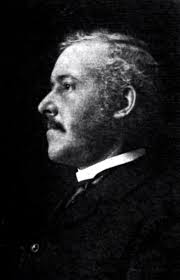
He and Eleanor were to re-meet and marry 20 years later in 1943. Several twists and turns of fate placed Jim Newton in Akron, Ohio and installed our next group of players. They were both, Oxford Group members and regular attendees at Oxford meetings. We will be talking about the intertwined relations of Henrietta Seiberling of the Seiberling (Goodyear) Tire and Rubber Co., Dr. Walter Tunks, Harvey and Russell Firestone, Sam Shoemaker, Frank Buchman, T. Henry and Clarace Williams, and Anne and Dr. Bob Smith.
Jim Newton went to Fort Myers in 1926, at the age of 21, to visit his father, and they bought a 35 acre tract of land across the road from the Thomas Edison Estate. Jim Newton became an adopted son to Mr. And Mrs. Edison, and often acted as host and toastmaster at Edison’s famous birthday parties which were attended by Henry Ford, Harvey Firestone and many renowned business leaders and political figures.
Here begins another key set of circumstances to set the stage in Akron, Ohio. Harvey Firestone, Sr., offered Jim a job as secretary to the Firestone Tire and Rubber Co. In 1926 and moved him to Akron, Ohio. Jim worked eleven years and was being groomed as president of the company when he resigned and went full time with the Oxford Group. Firestone’s clergyman was Rev. Walter Tunks. Jim joined Tunks’ church and became active in raising funds. These were groups of men who made attempts to convert others to the Oxford Group method of spirituality. Jim frequently met with the previously mentioned Shep Cornell and Rowland Hazard. He met T. Henry and Clarace Williams, husband and wife, Oxford Group members of Walter Tunks’ Church.
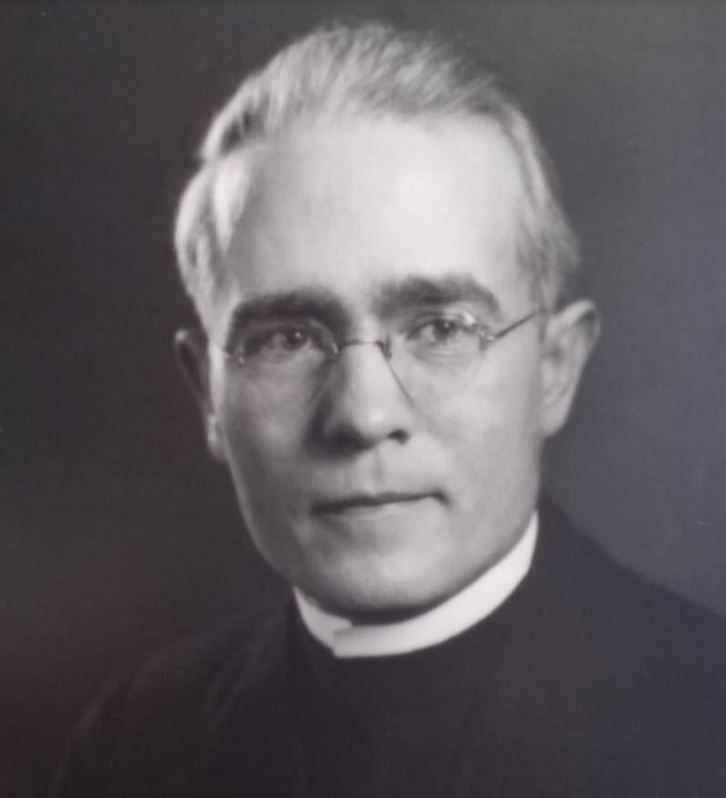
The business team put on house parties in various cities (including Detroit) at the finest hotels and clubs. In January of 1933, Frank Buchman, leading a team of thirty men and women, descended on Akron for the first time to give “testimonials” at the Mayflower Hotel and in Akron churches and to initiate the townspeople in theexperiences of the Oxford Group. Here we can clearly see the input from Jim Newton’s parties with Firestone and Tunks’ Episcopal Church group to influence the choice of Akron as the site of this endeavor, rather than some other city. Had Jim not already been a business team member and living in Akron, it is unlikely that Buchman would have chosen this small, rather unknown city as a place to pursue his evangelistic efforts. Jim was the spokesman who introduced Buchman at all the affairs that week in Akron.
When Jim first arrived in Akron, he had been welcomed into the Firestone family and became fast friends with a son, Russell (Bud) Firestone. Bud had a bad drinking problem and had already been sent to several hospitals to no avail. Jim went with Bud to still another drying-out place, on the Hudson River in New York and stayed through the entire 30-day program.
Jim Newton had helped bring to the city, the Oxford Group message of his alcoholic friend, Bud Firestone. The message led to Bud’s “miraculous recovery” which lasted a time. The message and the recovery were broadcast to an interested community by a grateful father, Harvey Firestone, Sr. and by widespread press accounts.
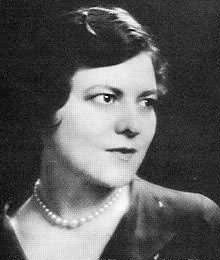
Clarace and T. Henry Williams began attending the Oxford Group meetings regularly. About the same time, a lady named Henrietta Seiberling, the wife of John Seiberling of the Seiberling (Goodyear) Tire and Rubber Co., turned to the Oxford Group after finding herself bestowed with personal and marital problems; separated from her husband. She turned to the Oxford Group and attended the first meeting at the Mayflower Hotel. She attended the meetings with a woman named Anne Smith, the wife of a well-known Akron surgeon who was in deep troubles with his own drinking.
The originators of the AA program had now begun fulfilling their roles. The kindly missionary-oriented couple, the Williams, had been so impressed by the Oxford Group message that they offered the use of their home. A compassionate lady named Henrietta, who had mastered some of the Oxford Group principles, had her eye on the biblical principles to help her good friend, Dr. Bob Smith, with his drinking problem. Added into the mix, was the doctor’s wife, Anne, who assembled books, spiritual readings and principals from the Bible and the Oxford Group, plus various other Christian readings, all the while praying for a solution to her husband’s drinking problems. Now it all converged together, when Bill Wilson, A New York stockbroker, and Dr. Bob Smith met on Mother’s Day, May 12, 1935, which Bill and Henrietta felt was the guidance of God. Bill had recovered from his disease and was determined to stay sober by seeking out and helping another drunk.
In our above research, we find the connections of the Oxford Group to Detroit. It was through the Ford-Firestone families’ business and social backgrounds. All three men, Henry Ford, Harvey Firestone and Thomas Edison took an interest in the idea of “First Century Christianity,” because of world conditions. All was handled by Clara Ford, Henry’s wife, because she handled all the family’s charitable work.
In the book, The Believer, Clara Ford’s biography, it states, “…it was not so strange that she responded heartily to a suggestion made by Bishop Charles D. Williams of the Diocese of Southern Michigan. The Bishop explained that their mutual friend Harvey Firestone had written him saying that the Rev. Dr. Frank Buchman, founder of the religious movement known as the Oxford Group, expected to hold a series of meetings in Detroit. Dr. Frank Buchman was anxious to find someone who would give a dinner for him and his co-workers with a view to making plans for the meetings.” The book continues, “The Fords not only gave the introductory dinner but also entertained the leader and workers at the Dearborn Inn. Clara attended the meetings, sincerely moved by their basic message.
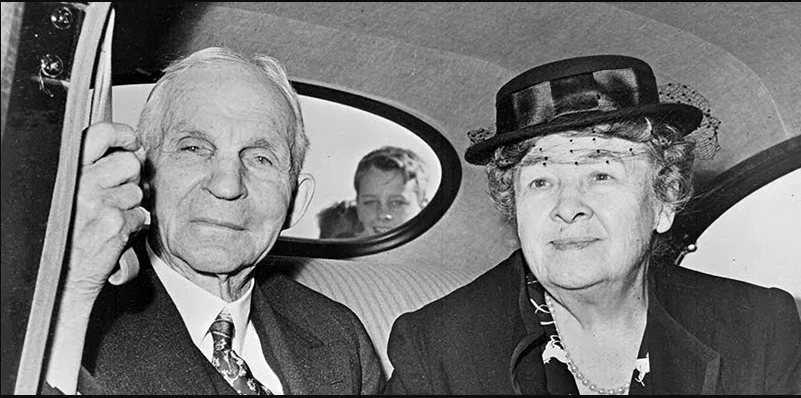
She decided to attend some of the group sessions soon to be held near Boston* and invited a number of interested friends to go along. “Why don’t they take the ‘Fair Lane’?” Henry suggested. “It would be much simpler. You could live aboard the car, have breakfast and dinner on it, not bother about hotel rooms or luggage.” The Fords’ private car made the trip easy and comfortable for everyone.”
In Pass It On, on page 170, it says, “During the 1930’s, the O.G. practice of ‘witnessing’ was helping alcoholics throughout the country. The movement had proliferated all over the United States…” It goes on to say, “It is possible that alcoholic members of those groups eventually came into A.A. In all probability, the Oxford Group attracted alcoholics simply because it appealed to people with problems.” About 1933-34, the Oxford Group was established in the Detroit area. Bill W. was a constant traveler to the Detroit Area in 1935 staying at the Book-Cadillac Hotel, probably visiting with Ebby Thatcher’s brother, who worked in Detroit as a stockbroker, Bill Wilson’s profession. In Dr. Bob and the Good Old-timers‘, on page 99, it states, “…Bill wrote to Lois about a Detroit man they had been working with that summer of 1935. ‘He is rather above middle age and typical of many I have seen in Towns (Hospital),’ Bill said. ‘He is not so far advanced, but will get cracked in a couple of years more. Poor chap, he wants to keep it all a very dark secret, so we couldn’t draw him out.” So, we can see Bill Wilson was making trips to Detroit and probably attending local Oxford Group meetings.
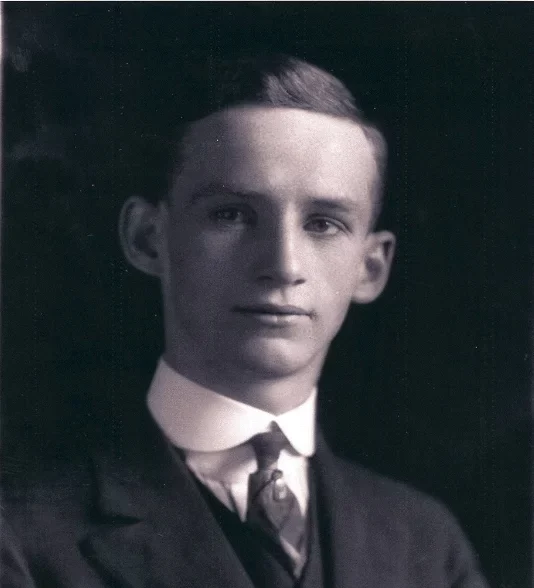
By 1937, people were staying sober, but there still was no fellowship of Alcoholics Anonymous. An example is Harry B. from the Lansing area sends telegrams to his wife, Ruth, indicating how he is doing. They are dated Nov 21, 1937 and discuss the hope for the future. Harry got sober at a clinic in Cleveland, Ohio, and then he says he attended meetings down in Detroit. Also, in 1937 people were becoming disillusioned to the movement. In the book, The Believer, the book states, “…Clara was genuinely interested in the meetings, but she also recognized certain elements in Buchman program which disturbed her, especially the frank and open confession of personal sins. She wrote: ‘The first public confession can be stirring but the tenth strikes one as the same old thing and the fatal suspicion arises that confessions are made not through humility but to persuade. They sounded coached and artificial.”
On page 171, in Pass It On, it states, “There were several reasons for Bill’s departure from the Oxford Group. He had a growing conviction that alcoholics needed to work with their own kind, a view he would continue to hold for the rest of his life.” It further states on page 177, “Later in 1937, Bill made a trip to Detroit and Cleveland looking for work. He didn’t find a job, but he did visit Dr. Bob and Anne in Akron.” This appears to be a journey to convince other locations to break-away from the Oxford Group, as the New York groups of drunks were doing.
By the summer of 1938, there appeared at the Detroit Oxford Group a timid falling down drunk of a young man, who’s parents had died a few months earlier. In his story, he says a group of his friends had passed a hat to send him away to a new program to help alcoholics recover. These people weren’t his personal friends, he had none left, but they were members of the Oxford Group, who passed the hat just to get this pest out of town. This little timid man was to be the starting point of Alcoholics Anonymous in Detroit and Michigan.
Source
https://aa-semi.org/archive/the-oxford-group-and-detroit/
With Permission of Bill T. Archivist, General Service of Southeastern Michigan, Area 33
